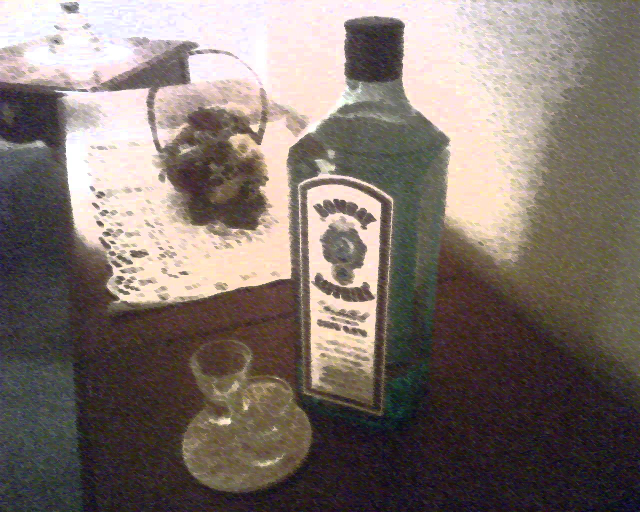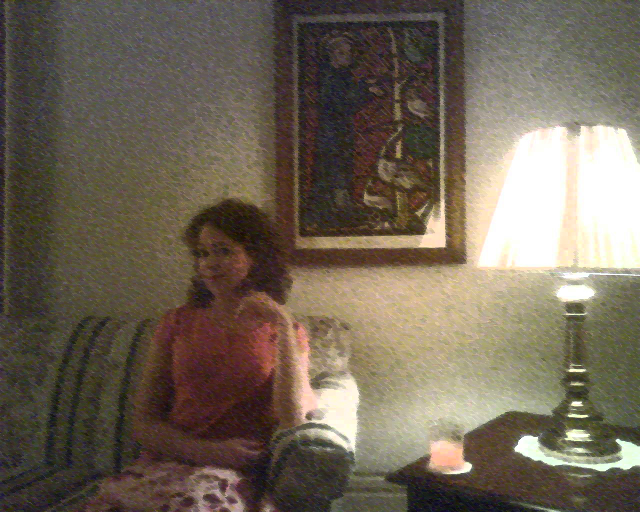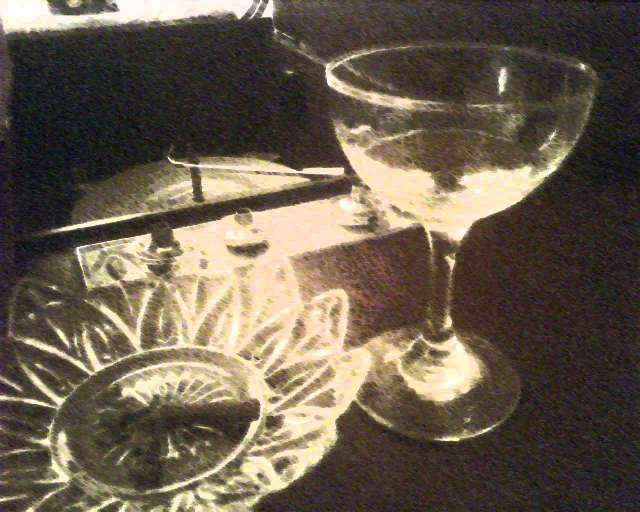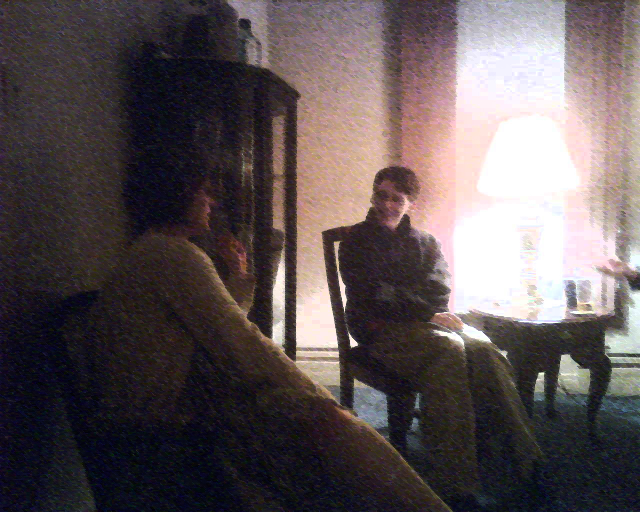
Chapter XCIV: Maverick
A Timelines Easter Special
Two Months Prior to Tom’s Final High School History Exam
“Therefore, the difference between Magical objects and Christian relics is what?” Sr. José asked at the front of the class.
The religion class of St. Ignatius of Loyola High School sagged underneath the collective weight of the afternoon weather. In southern California, even on the coldest of months, everyone felt a communal winding down after lunch. Tom Royce scribbled on his paper as the usual suspects of know it alls raised their hands. It was not that Tom Royce was bored from his studies. In fact, most of the time he would have to struggle to maintain the grades expected of him on the exams. Indeed, his scribbles—although admittedly intermixed with random drawings and musings—were fastidious in taking down as much as he cared to listen to from Mr. Joseph their religion teacher. Instead, he just was not in any particular mood to raise disdainful eyes towards the front and help educate tomorrow’s Catholic youth from his Protestant mouth.
“Señorita Perez,” the teacher called upon the young girl at the very front of the class who had held up her hand like a lightning rod attracting the quick eye of the young man turned high school educator in the front.
“The essence of magic is that the matter forces a Divine reaction that does not usually happen. Christian miracles are the Divine forcing a reaction in matter that does not normally happen,” the young lady dutifully explained with an alacrity in her voice that made Tom close his eyes only to roll them inwardly.
“Excellent, Señorita Perez,” Sr. José acknowledged. “Can anyone tell us anything more?” There was a tenuous pause. It was true that most of the class made sure to do their homework but rarely do these follow up questions gain too much hold over the overworked senior class. Sr. José was infamous for ambushing his class with these explanations. “Señor Rodrigo,” the teacher chose again this time choosing the tanned young gentleman sporting a lugubrious frown.
“Magic is the attempt of man to gain mastery over God whereas Christian miracle is the complete master of God over all matter,” the young man explained more in the nature of a sigh than an answer.
Sr. Joseph looked on at the young man who answered correctly but noted the frustration in Rodrigo Jimenes’s face. He had already expected it there, however. Rodrigo was a rather intelligent young man; and to be expected from someone who comes from such an illustrious and hard working family as the Jimenes. Nonetheless, Rodrigo had answered after the long pause only to get the class moving rather than for any form of self-pointing attention. That was the burden of Rodrigo’s intelligence; he knew all the answers and wanted to move forward.
“Correct,” Sr. José acknowledged. “Thus that is why there are no magical objects in the world; only objects which God decides to channel his will through. An object may have a history or a just cause to be venerated as miraculous but the miracles only come through God’s willingness to impart such a grace; never as the matter itself forces God to act. This is the same in the sacraments— Sr. Royce?” the instructor suddenly realized that Tom’s hand was raised.
“How can we tell the difference before an object of great and inexplicable power and that of a miraculous or even magical object?” he asked curiously. “I mean even we Protestants believe in miracles,” and here Tom made sure he gave that point out—any way of evangelization was a legitimate way for him to advertise an otherwise suspected religion—, “but how can we say that an object that is miraculous isn’t actually an item of which science today can only grasp at?”
Tom Royce had always been a maverick. He chafed against the local authority at times although never in a personally insulting way. His questions were always calculated and, perhaps, much like his resolution never to be bitter over the peaceful conversions of his fellow Protestants at the hands of the Spaniards, he wished to start his own Evangelization through objections raised intellectually. It was questions such as these that dominated his High School career. It made him the notorious but by no means token Protestant, but it also meant that exposure to any holes in the Catholic monolith at the school would be explored by his deep belief in the rightness of his variant of Christianity.
“This is why,” the teacher began after giving a pause to think about the questions carefully—he had long learned to be very careful with his responses to their resident Protestant lest Tom attempt to trap him on his words alone—, “many miracles are investigated by scientists to make sure they are authentic rigorously and especially by the non-Catholic scientists. That is why many non-Catholic scientists are hired by the Vatican in order to seek findings on miracles.”
“But what if today’s scientists cannot explain an object or phenomenon but scientists three hundred years from now can? Wouldn’t that make the whole thing a farce?”
“Not at all,” the professor responded, “this is exactly what we mean when we talk about the power of miracles only coming from the Grace of God. If people are granted grace through an item, then it is God’s will and if it is through natural reasons, then it still serves as a testament to the magnificence of God’s creation.”
“That’s a bit of an easy way out, don’t you think?” Tom asked without a hint of sourness. His earnestness hid any disdain or contempt in the question—he promised himself that only civil discourse should win the day. If the Spaniards showed them that much courtesy he would return it.
“If a man prayed for a miracle to save him from an incoming storm and he held onto a holy relic which dispersed the storm, he would thank God for the salvation and people might attribute a power to the relic of some kind. However, if it was found out a week later that the intense amount of ions in the relic caused the atmosphere to disperse, it would not invalidate the fact that the man’s prayers were answered. You have to understand that although some miracles do indeed happen, perhaps an even greater miracle is the fact that God can plan since the beginning of Time to allow miracles to happen by natural causes.
“For example, it would take an amazing genius and/or computer to be able to calculate that five balls falling down pegs would all crash in the middle by moving each ball over the appropriate slots at the appropriate positioning to do so. In the same way does God allow for seemingly random choices that people make converge into his Divine plan. Who here has watched the movie Magnolia?” A few students raised their hands, “In that movie we saw many random events converging together and all weaving a common story. It is the same way with God’s will. Thus, if a miracle happens by natural means, we should still be in awe that the prayer that we were going to make at point X in time was answered already at X = 0. That it was set up in the very fabric of the universe.”
A few of the students sighed a kind of aw at Sr. Joseph’s words that caught Tom off guard. Even he admitted that the reasoning intrigued him. In fact, it intrigued him enough that he began scribbling some more on his paper. “An object that was intended by God to have the power to bring his plan together,” he wrote down. All he needed now was to give it a name.
---
One Month Prior to Tom’s Final High School History Exam
Lady Clara grinned at their newest director. “It was so good of you to accompany us for this little soiree,” she expertly purred while leading him into the room dubbed the Cardinal’s Room.
The St. Agnes Mansion located in the foothills of Tustin, California had been part of the Scarlet Academy since nearly two decades ago. Although most of the organization’s main resources were an online affair, major players continued to headmaster the organization in the most old fashioned of ways—through cordial conferences in close quarters and in opulent mansions.
It was a former convent which had been bombed by Eastern American insurgents during the Great War and abandoned by the order of Carmelites that had inhabited her noble walls. When the war ended, the wealthy men and women of the Scarlet Academy’s highest tiers bought the property and rebuilt it. It was even redubbed a “Mansion” as opposed to a Convent. Graced with a mixture of modernist architecture coupled with the vintage style of the early turn of the century, the mansion itself was an impressive architectural wonder of nearly thirty rooms in total in the shape of a regular rectangle. There was even a trace of a graceful garden with a statue of Our Lady of Perpetual Grace on the front lawn and a muscular—strangely enough—figure of St. Francis in the back yard which contained enough lawn to host a golf course.
Within this fusion of old and new was the Cardinal’s chamber. It was not that the room was the main room of the mansion nor was it even a shade of red on its furniture—although some of the flourished furniture indeed shone a dull hue of red—but it was because it was in this room that the directors were always entertained—and ever since the end of the Great War, they had always been Cardinals.
“It was good of you to bring everyone together, Lady Clara,” the director responded as he stepped in copy step with the woman.
“It’s my pleasure,” she responded before rounding into the room itself. Spacious yet comfortable, the lights were a bit softer than the other rooms: it was meant to be more contemplative than usual.

The woman, however, immediately twirled towards the china cabinet and offered His Eminence a drink. “Perhaps you’d like to drink something while we gather up?” she asked.
Maybe it was because she knew the Cardinal’s weaknesses or perhaps it was protocol for every new director of the Scarlet Academy, but the Cardinal accepted a glass of anything the woman would choose. “Some gin perhaps,” the Cardinal said.

Clara allowed the Cardinal to find a seat before bringing some of their best gin and some glasses forward. She placed them carefully at the table next to him and poured him a shot and two. Already being aggressive, the Cardinal thought.
As Clara was doing the honours, a few more individuals joined the room and occupied several of the seats around the dim lamps hoping to catch some casual conversation before business began. However, the Cardinal coughed to bring everyone to attention.
“As you all know,” the Cardinal began, “I have been appointed as the new director for the Scarlet Academy ever since the retirement of our well beloved Cardinal Yontz. Please understand that although I have already scheduled official meetings and dialogue with the various parties two days from now, I thought that I would ask Lady Clara to bring you all together to have an informal party and get to know each other on a more casual basis. The Scarlet Academy is one of the most important organizations of our glorious nation and its ideals are impressed into the young who are more than willing to risk death or capture in order to keep Spain from facing the kind of darkness we had in the Great War. To that end, I hope you all will take my new elevation with understanding and I hope to work with all of you to make this peace permanent.”
There were no applauses here; it was only the very top of the organization who greeted him with resolute nods. That was when Lady Teresa spoke up.

“On behalf of the current staff of the Academy we are delighted to finally as young as you, Eminence. We do hope to continue to shape the formation of your youngsters.”
There were pleasantries exchanged all around. And the informality of the meeting took hold. Department heads were exchanging greetings from others who they had not seen except through teleconference and, naturally, the Cardinal was making his rounds greeting everyone around the circle. Tea was served alongside the alcoholic beverages for all those who wished to partake in something with caffeine as well as the introduction of cigarillos. Much to his young nature, the Cardinal as well undertook that vice. The phonograph made itself ready for another change in vinyls.

It was perhaps an hour into the discussion—everything from the secretive training of overt agents as well as the covert impressionist training of the heirs of the various key families of the institutions of the country as well as oversight by the Silent Room—when Lady Clara, having found something to distract her on her cell phone leaned over to the Department Head for the High School recruits.

“Is this data accurate?” she said to the man who was still smiling through the pleasant evening.
Lord Ryan Adams; the eminent head of those in the High Schools Department of the Academy and thus in charge of selecting and monitoring new agents and established heirs respectively lost his countenance when he received the news.
“Your Eminence,” the man did not waste time accosting the attention of the main guest. “I’m afraid there’s something that requires your immediate attention. According to Lady Clara’s information, we have reason to believe that there has been a breach in security.”
“What do you mean?” their leader asked them.
“It seems that during the course of normal work in one of the High Schools under my jurisdiction—the one where I’m watching over the Jimenes heir—one of his classmates typed in one of the keywords blacklisted on our database into the school computer and then again on his personal computer.”
“Which word was that?” the Cardinal asked as the good Lord Ryan walked over to the side table where the scotch had replaced the gin half an hour earlier and more cigarillos laid still in a graveyard. Placed in front of him was a laptop displaying the pertinent information on the alarm. The word written at the top was clear; “Timepiece.”

Chapter XCV: Timepiece (coming soon)
Last edited:

